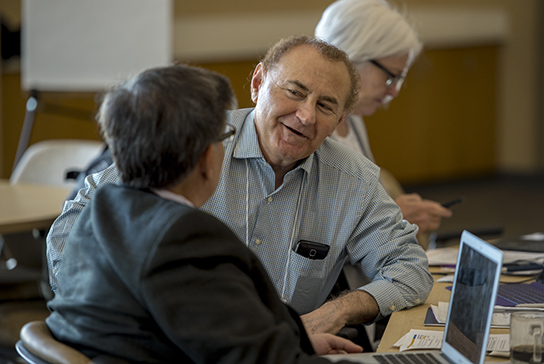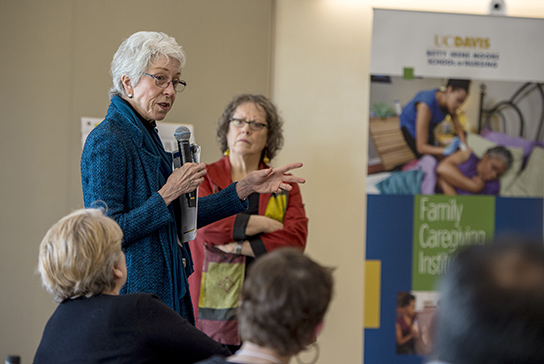School of Nursing brokers valuable discussion on family caregiving

The number of older adults living with chronic disease, functional decline, and serious illness is growing exponentially at a time when the availability of both family and professional caregivers is strained.
About one in five American households is involved in a wide range of caregiving activities that vary in intensity, from checking on aging parents to providing total care to a disabled family member.
The Family Caregiving Institute at the Betty Irene Moore School of Nursing at UC Davis hosted an international summit in 2018 to map out research priorities to address the alarming statistics. The event brought together more than 50 national and international experts in family caregiving. They identified areas where investment by funders can yield the greatest impact. These priorities were published by The Gerontologist in a special supplement »
Family Caregiving Institute research summit
“Every year, there are fewer people available to engage in family caregiving than we have people who are turning 65. In 1950, there were approximately three adults over the age of 65 for every 100 people of working age. By 2050, that ratio is expected to be 30 to 100,” said Terri Harvath, who served as the institute director at its launch. “It is incumbent upon us to figure out how we can best support the families who are providing care to older adults because we as a nation and world cannot afford to pay for the care that older adults will need.”
Attendees from disciplines including nursing, medicine, social gerontology, and computer technology participated in small-group discussions and large-format collaboration. They focused on multicultural approaches and the use of technology to optimize care for people with serious illnesses. They arrived at 10 priorities.
“I think nursing gets this issue better than most fields I see. The fact that resources have been poured into a caregiving institute gives me tremendous optimism,” explained Kenneth Hepburn, a gerontologist and professor at the Nell Hodgson Woodruff School of Nursing at Emory University.
Harvath said the summit builds on increased attention on family caregiving by policymakers and the National Institutes of Health.
“Through the summit, we now have a list of prioritized areas for caregiving research that can help funders — both federal and also foundations interested in this area — to make decisions about how best to steward the research dollars to have maximal impact,” she said.



